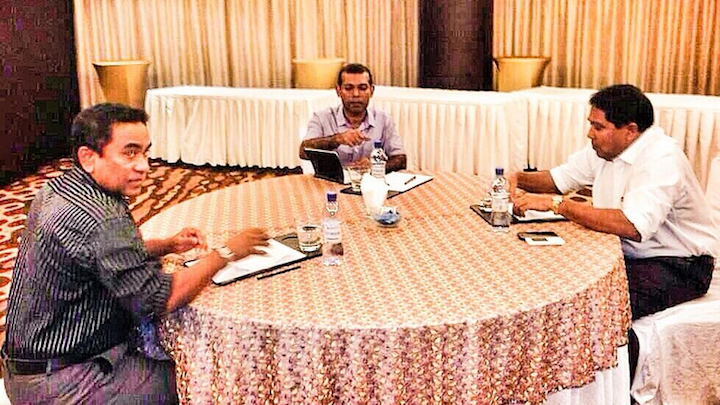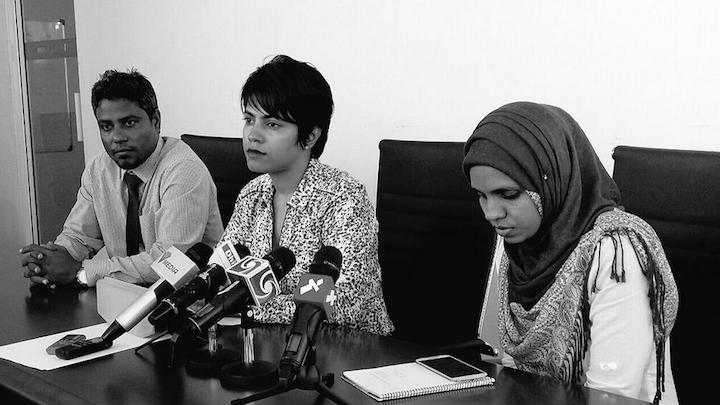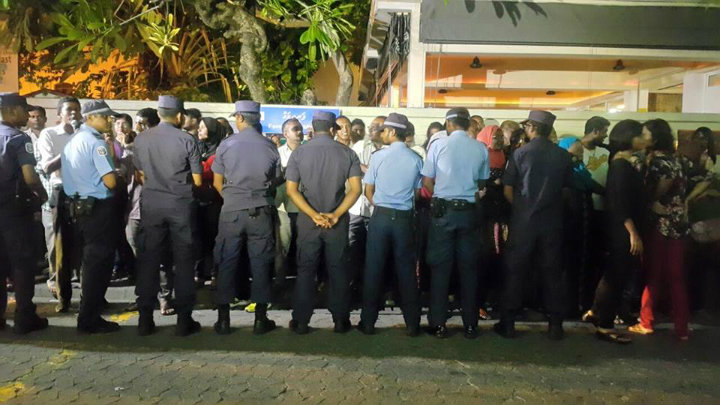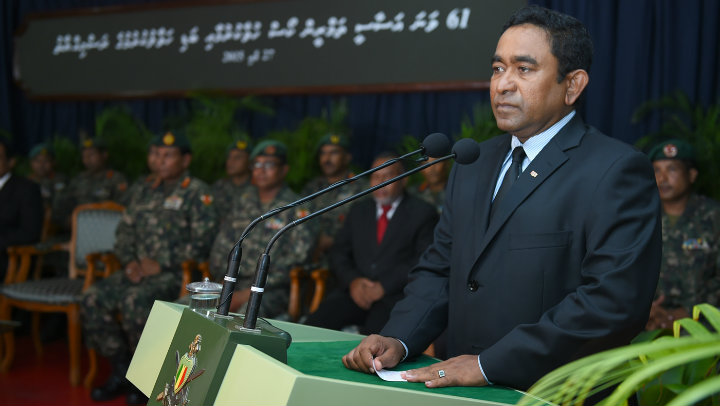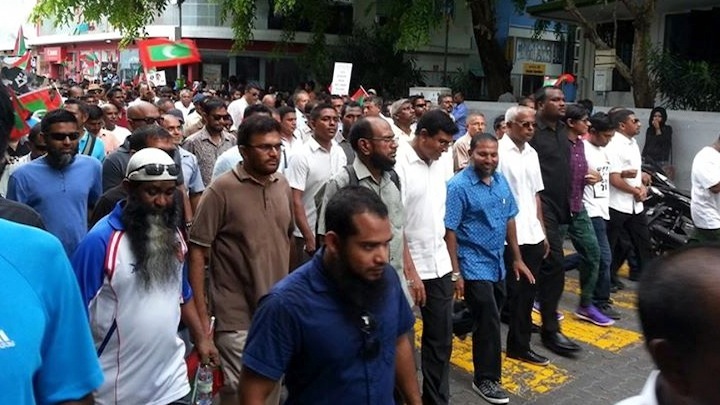After months of daily protests and hundreds of arrests, the Maldivian government has called for separate talks with the allied opposition parties. But Maldivians are skeptical of a solution with the government unwilling to discuss the triggers for political unrest – the imprisonment of ex-president Mohamed Nasheed and ex-defence minister Mohamed Nazim.
The main opposition Maldivian Democratic Party (MDP) insists Nasheed must represent it at the talks, but President Abdulla Yameen has rejected the former-president’s nomination on the grounds he is serving a 13-year jail-term on a terrorism conviction.
The president’s agenda consist of political reconciliation, strengthening the judiciary, and political party participation in economic and social development.
Ahmed Faraz, a 21-year-old law student at the Maldives National University, said he has no hope: “The president is unwilling to compromise at all. He has already decided the agenda and rejected the MDP’s main demand, which is to release Nasheed. So I don’t see a solution unless one party decides to give in.”
The belief the government wants to keep Nasheed in jail at all cost is widespread.
Aishath Sana, a mother of two, said: “One thing is clear to me. Yameen wants Nasheed to remain in jail and the MDP doesn’t want that. If the government sincerely wants a fruitful end to the discussions they would have at least agreed to discuss Nasheed’s release.”
The government insists Nasheed and Nazim must exhaust all domestic appeal processes, while President Yameen says he has no constitutional authority to release the pair.
A ruling Progressive Party of the Maldives (PPM) activist from Fuvahmulah said he, too, does not expect a meaningful outcome from the talks.
“The government has not released Nasheed and Nazim despite repeated calls from the international community to release the pair. So why would they listen to demands from domestic political parties?” Basil Thuthu, 22-years, questioned.
Why does the government want to keep Nasheed in jail?
“If the government decides to release Nasheed, which I don’t think will happen, he would again fight for the presidency and the government would want to shut him up again. So hope for a politically stable country is a much too ambitious goal,” Basim Abdulla, a young professional designer said.
“With Ramadan just a few weeks away, I think political activity will slow down. But I do not see lasting stability,” he said.
Some see MDP’s call for Nasheed’s release as stubborn. A lawyer who wished to remain anonymous said the government, for the first time, is willing to discuss judicial reform. The MDP must use the opportunity to reform the judiciary, a step that will lead to Nasheed’s release, he said.
“We all know the justice system is corrupt and weak. This is the reason why Nasheed is behind bars right now. So why not stop all the work and work on reforming the justice system? The government with all its might is saying they won’t release Nasheed. I think it’s time for MDP to compromise,” he said.
But others say if the MDP compromises and gives in, it will lose public support.
“The government is not backing up even a bit. So if MDP gives in now, and stay quiet, they will face a big defeat in the next election,” Mohamed Ismail Umar, 46, from northern Kulhuduhfushi Island said.
One PPM activist, however, said he expected a solution soon.
“The president wants to involve everyone in the discussions. I think it is impossible for Nasheed to participate in the talks and it doesn’t make any sense as he serving a sentence right now. So eventually, if the political parties want a solution, which I think is what everyone wants right now a positive outcome will come,” Ahmed Abu Bakuru, a coordinator at the youth ministry, said.
The invitation for talks was extended on May 14, but there has not been any substantial progress yet.
The opposition is now planning a third mass protest for June 12. Many opposition supporters say they have no choice but to keep on protesting.
The MDP youth wing’s president Mohamed Azmeel said he is encouraged by the increasing support for the opposition. The numbers at protests are growing, he said.
Over 10,000 attended a mass protest on February 27, while over 20,000 attended the May 1 protests, he said.
“The call for talks is just a game. The government only wants to appear reconciliatory when, in fact, they are not. I do not see any hope at this moment. But this will eventually end in the citizens’ favour. The longer this stalemate continues, more and more people will get fed-up, and the government will be eventually forced to back down,” he said.
For others, the government’s intransigence in the talks signals a slide into authoritarianism.
“I think the future is quite clear. The country will be stable but we won’t be practicing democracy. We might get a glimpse of development here and there but people won’t be free. We are heading towards a long dictatorial regime,” Ibrahim Lirar, a 27-year-old resort worker said.
Photo by Dhahau Naseem


